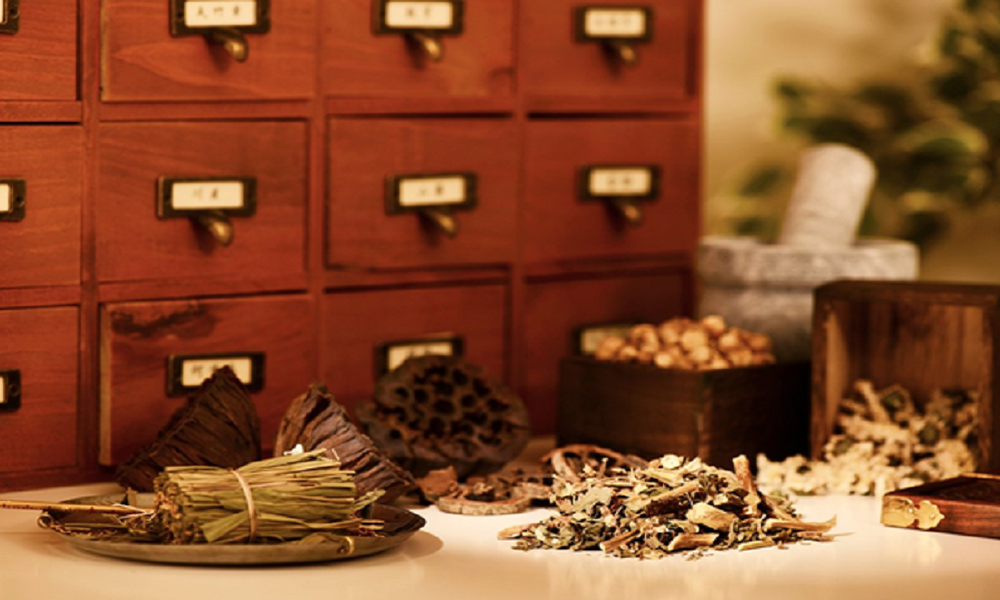By Vibrant Dot Staff
It can be really confusing when two different things share the same name. For example – although both are called “spleen”, it refers to completely different parts of the body in Traditional Chinese Medicine (TCM) and Western medicine.
The spleen in Western medicine is an organ in anatomy while the spleen in TCM is an abstract concept and a dynamic function system consisting of several abdominal organs including the pancreas, stomach, small intestine and large intestine.
From TCM’s perspective, the spleen is crucial for survival. Maintaining a healthy spleen is of top priority to promote well-being and for extension of life.
Spleen in TCM
Broadly speaking, the spleen in TCM serves two main functions: to transform and transport nutrients and to control the blood circulation.
- Transport and Transform Nutrients
The spleen in TCM is vital for digestion of food and absorption and transportation of various nutrients and water. Deficiency in the spleen can cause food indigestion, belching, bloating, diarrhea and other related issues.
After nutrients and water are transported to the heart and the lung, they are further transformed into “qi” (氣) or essence and blood for nourishing the whole body and maintaining the internal organs in relatively constant positions.
- Control Blood Circulation
The spleen also controls the blood circulation and prevents blood from flowing out of the vessels.
If the spleen does not function well, one may suffer from deficiency in both qi and blood. Symptoms include excessive menstrual flow, blood in urine and bleeding into the skin and muscles.
Spleen in Western Medicine
The spleen is a lymphoid organ in anatomy. According to Western medicine, the spleen has four main functions — producing blood cells and platelets, storing blood, filtering blood and boosting the immune system.
The most important function of spleen in Western medicine is blood filtration. It helps remove bacteria, foreign bodies and old red blood cells. These bad substances are broken down by macrophages when blood flows into your spleen.

A Thought From the Heart — or Brain?
The “heart” also means different things in TCM and Western medicine.
In Western medicine, the heart is a beating muscle about the size of a fist. With each heartbeat, it sends blood to circulate throughout the whole body. The heart is like a pump responsible for blood transportation and circulation.
In traditional Chinese medicine, the heart not only controls the blood but also commands the thoughts and consciousness of a person — or in other words, “the heart controls the mind” (心主神明).
According to Huangdi Neijing (黃帝內經), the foundational text for Chinese medicine, the heart can receive information, generate thoughts, and instruct the body to respond to the external environment.
From the perspective of traditional Chinese medicine, thoughts originate from the yuanshen (元神) or the main spirit, which could sit in the brain or heart. This is why the Chinese saying goes “think with one’s heart” (心想) and “do things with one’s heart” (用心做事).
The heart in TCM is vital in human life activities. Huangdi Neijing states that “the heart is the master of the five organs and the residence of the spirit.”
Renowned ancient Chinese doctor Zhang Jingyue (張景岳) said that the human body’s functions and activities are all controlled by the heart, and the human body maintains a unified and harmonious system through “the heart controlling the mind.”
When Professor Hao Wanshan (郝萬山) with the University of Chinese Medicine gave lectures outside of China, he was once challenged by a Western young man: “Mental or spiritual problems are dominated by the brain. How can it be the heart?”
Professor Hao responded: When you express your love for your partner, will you give her a heart-shaped pendant or a brain-shaped pendant? In English-speaking countries, people often say “from the bottom of my heart” when expressing emotions. It seems that the “heart controlling the mind” is not unique to oriental culture but is found in Western culture as well.
Appreciating TCM
There is no direct correspondence between organs in TCM and the physical organs. It is a bit confusing, isn’t it?
The approach of TCM to managing the well-being of the human body is analogous to how society is managed.
Consider ourselves. We may be supervisors, employees, engineers, and so on at work. When we return home, we may be parents, children, brothers and sisters, elders, etc. We participate in various groups in our spare time. We wear multiple hats and fulfill different social responsibilities. We automatically switch roles, too.
Human society is intertwined, managed, and operated by these functional groups. The same goes for Chinese medicine’s view of the human body. The organs in TCM are different parts of the body and dynamic systems that coordinate to ensure our wellness.
















